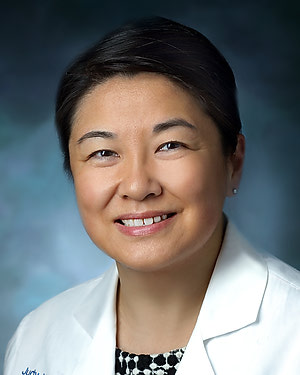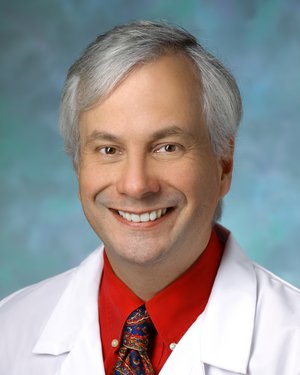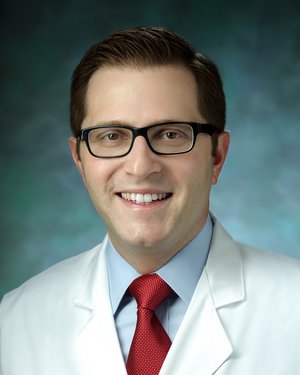-
Judy Huang, M.D.

- Vice Chair, Neurosurgery, Johns Hopkins University School of Medicine
- Irving J. and Florence Sherman Professor in Neurosurgery
- Director, Neurosurgery Residency Program
- Director, Department of Neurosurgery, Johns Hopkins Bayview Medical Center
- Director, Cerebrovascular Neurosurgery, Johns Hopkins Bayview Medical Center
- Director, Cerebrovascular Neurosurgery Fellowship Program
- Co-Director, Trigeminal Neuralgia Center
- Co-Director, Chiari Center
- Co-Director, Multidisciplinary Adult Cranioplasty Center
- Co-Director, Fellowship in Neuroplastic Surgery
- Professor of Neurosurgery
-
Rafael H Llinas, M.D.

- Director, Neurology at Johns Hopkins Bayview
- Director, Johns Hopkins Neurology Residency Program
- Professor of Neurology
-
Elisabeth Breese Marsh, M.D.

- Associate Director, Neurology Residency Program
- Director, The Comprehensive Stroke Center at Johns Hopkins Bayview
- Associate Professor of Neurology
-
Wendy Ziai, M.D., M.P.H.

- Medical Director, Neurovascular Laboratory
- Co-Director, Johns Hopkins Bayview Neurocritical Care Unit
- Professor of Neurology
- Professor of Anesthesiology and Critical Care Medicine
- Professor of Neurosurgery
Intracerebral Hemorrhage Center
Each year, approximately 795,000 Americans suffer a stroke. The country’s third-leading cause of death in people over age 40, stroke takes the lives of more than 143,000 people annually. Of those strokes, 10 percent are intracerebral hemorrhages (ICH), which occur when a diseased blood vessel in the brain suddenly bursts, causing blood to leak into the brain. The rapid increase in pressure can cause damage to brain cells, or even lead to unconsciousness or death.
Time is of the essence to prevent and treat ICH. At the Johns Hopkins Intracerebral Hemorrhage Center, a multidisciplinary team of recognized stroke experts—including neurologists, neurosurgeons, interventional radiologists and specialists in physical medicine and rehabilitation—join forces to provide comprehensive, life-saving care for this potentially fatal condition.
Using state-of-the-art diagnostic tools and the most advanced treatments available, the medical team works together to identify the problem and combine the best therapies to meet each patient’s needs. Patients also benefit from an on-site neuroscience critical care unit, neurology step-down unit, post-surgical care and rehabilitation consultations.
Although some patients come to the Intracerebral Hemorrhage Center with life-threatening intracranial bleeds, most patients are referred after they've had an MRI for the evaluation of another neurological condition, such as seizures, headaches or memory problems. Their MRI instead shows an abnormality associated with a high risk of intracranial hemorrhage. These abnormalities include asymptomatic AVMs, aneurysms, cavernous hemangiomas, amyloid angiopathy or other conditions, all of which can cause a large ICH. Many referring internists and neurologists would like to have a center with the expertise to help them manage these patients—and this is it.
The Johns Hopkins Intracerebral Hemorrhage Center is affiliated with the Stroke Center at Johns Hopkins Bayview. The Stroke Center has been recognized by the American Heart Association/American Stroke Association Get With the Guidelines-Stroke Program for its commitment to quality patient care.
Making an Appointment
To schedule an appointment at the Johns Hopkins Bayview Stroke Center, call 410-550-8703. A physician referral is required. The center accepts only outpatient appointments.
Refer or Transfer a Patient
Transfers for inpatient admission are made through the Hopkins Access Line referral service, 1-800-765-5447 in the continental United States, and 410-955-9444 for Baltimore area and international calls. Inpatients are accepted based on bed availability.
Before Your First Appointment
When you come for your first appointment, please bring any imaging studies you have had done at other hospitals, as well as documentation of prior hospital admissions. In addition, please complete and bring in the following forms. If you have questions or need assistance, call 410-550-8703.
- New Patient Questionnaire
Provides your health care team with an overview of your medical history, lifestyle habits and current symptoms. - Medication Reconciliation List
Provides your health care team with a current listing of the prescribed and over-the-counter medications (including vitamins and herbal supplements) you are taking.

